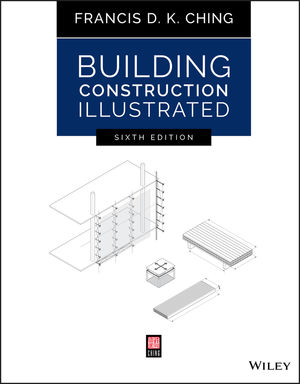Skanska Quits U.S. Chamber Over Anti-LEED Lobbying
International construction giant Skanska USA has terminated its membership in the U.S. Chamber of Commerce due to what the firm views as attempts to “halt progress in sustainable building.” The move reportedly came after failed talks with the U.S. Chamber about its policies and follows on the heels of a pro-LEED op-ed in the Washington Post penned by Michael McNally, president and CEO of Skanska USA.
At issue is the U.S. Chamber’s membership in the American High-Performance Building Coalition (AHPBC), an advocacy group formed by the American Chemistry Council and other trade organizations to support green building standards developed through the ANSI [American National Standards Institute] or ISO [International Organization for Standardization] consensus process. Although AHPBC claims it does not favor one rating system over another, its emphasis on ANSI mirrors the Green Building Initiative’s claims for its Green Globes rating tool. Chemical and plastics companies have objected to new credits in LEED v4 that will reward project teams for using alternative materials.
The U.S. Chamber is going against its own values by not supporting LEED, McNally argues. “I believe in a lot of what the U.S. Chamber does,” he explained. “They do a good job of representing business. I’m really disappointed in this position that they took.”
LEED has been a huge boon for the construction industry, he claims, offering “immediate paybacks” as well as long-term economic health due to lower health-care and energy bills that make the U.S. “able to compete on a global basis.”
McNally adds, “We’re building these things that are lasting a hundred or more years, and we need to be responsible. It’s, for me, kind of a moral issue.”
Skanska’s timing reflects a sense of urgency about a forthcoming amendment to the popular Shaheen-Portman energy bill—an amendment that could potentially prevent federal agencies from using LEED for its projects. “What I’m trying to do is raise awareness,” McNally explained. “The vast majority of businesses would be upset and outraged that this is going on, but they’re not aware of it. It’s one way to get the issue out in the open.”
“Once again this year, we are strong supporters of the Shaheen-Portman energy-efficiency bill,” says Matt Letourneau, director of communications and media at the U.S. Chamber of Commerce. Letourneau declined to speculate about the Chamber's support of specific amendments to the bill because, he says, “both the timing and the state of various amendments seem very much in flux right now.”
An AHPBC spokesperson made a similar statement but adds, “I can reiterate that one of the coalition’s objectives is to advocate for green building standards that align with the coalition’s mission when considered for adoption by federal, state and local governments.” Although multiple LEED credits reference ANSI standards, the overall rating system is not developed through the ANSI process. (It’s unclear whether the Green Globes rating tool is based on the Green Building Initiative’s ANSI standard, ANSI/GBI 01–2010.)
Trying to keep LEED out of the federal government just doesn’t make business sense, McNally says. “I don’t think it’s right for the industry to have a parallel system for the government. It adds bureaucracy, and it adds cost,” he notes.
But some trade groups counter that the U.S. Green Building Council (USGBC) has excluded their point of view from the process. Following the successful passage of the new LEED v4 rating system, AHPBC released a statement criticizing USGBC for “disregarding the sustained, serious technical objections from important stakeholder groups”—namely, manufacturers of plastic foam insulation, PVC, manufactured wood products and other building materials.
“We do not view our membership in the American High-Performance Buildings Coalition as inconsistent with our support of building efficiency or even of LEED standards in the future,” notes Letourneau. “Rather, we believe it is constructive to have a dialogue regarding the criteria used in future green building standards. A consensus-based approach to stronger efficiency standards will ensure broader acceptance and implementation.”
McNally is having none of it. “They hide behind words like ‘consensus,’ which is nonsense,” he says. “They know better.” McNally adds, “How could you ever have a standard like this and have 100% yeses? If you [were to] wind back the clock, we’d still have lead paint—because God forbid we push the lead-paint people out and not get consensus!”
Skanska USA still supports the U.S. Chamber of Commerce and is not encouraging others to resign, according to McNally. “The goal was the kill the [anti-LEED] amendment,” he said. “Success, to me, looks like the amendment doesn’t get attached and the chemical industry and this coalition give up.”
With a tough fight over student-loan reforms in its near future, it’s unclear when the Senate will take up the Shaheen-Portman bill and the many amendments the legislation already has attracted; however, sources suggest it could be as early as July 15.
This story originally appeared on BuildingGreen.
Copyright 2013 by BuildingGreen Inc.




